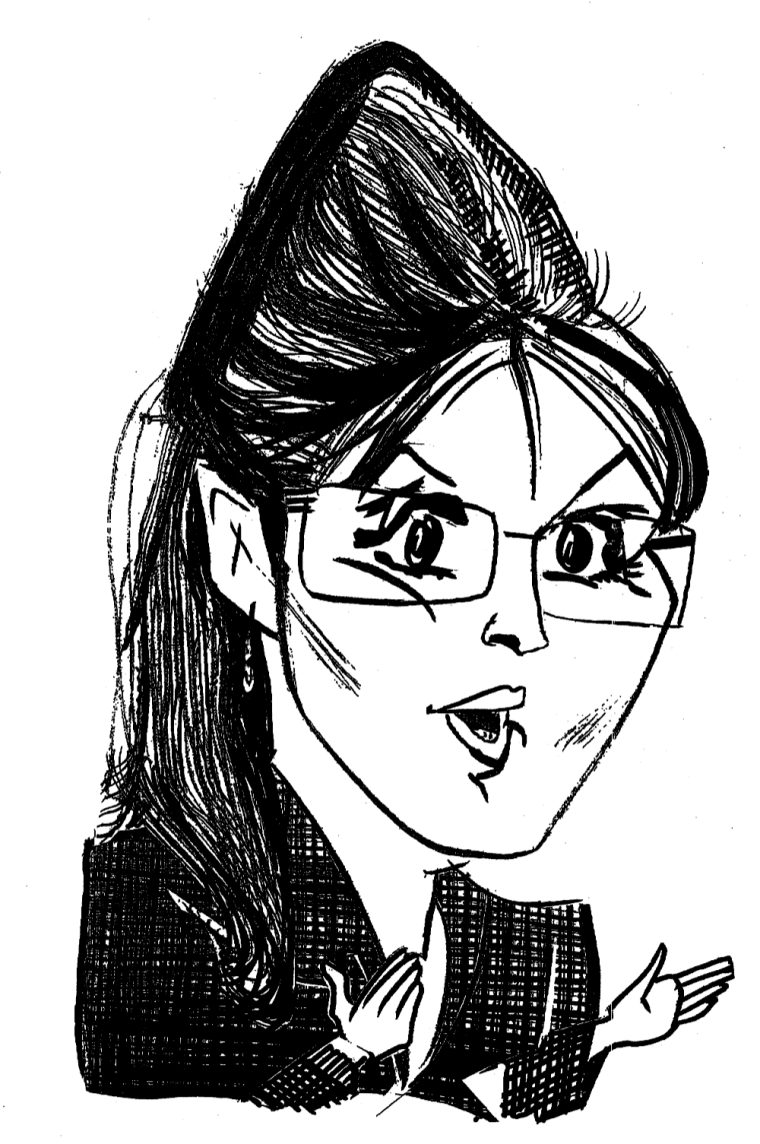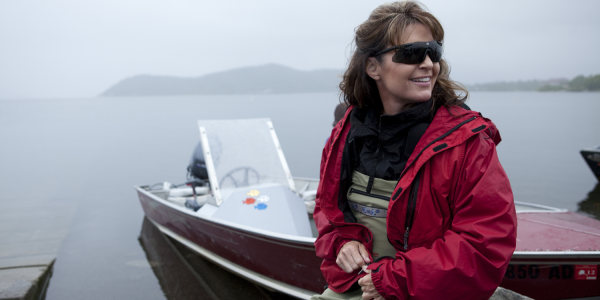David Westin has served as the president of ABC News for about eleven years. He oversees the journalism of “Nightline,” “World News with Charles Gibson,” and “20/20.” The Walt Disney Company owns ABC, however, and, at times, Westin has seemed to struggle to police the foggy border between news and entertainment. For example, in 2000—two Presidential-election cycles ago—he permitted the actor Leonardo DiCaprio to film a talk with President Clinton, to commemorate Earth Day. After this decision attracted criticism, on the ground that it was a perversion of journalism, Westin wrote an e-mail to colleagues in which he denied that he had ever regarded the program as an “interview.” It couldn’t have been, because having movie stars conduct interviews would be a violation of professional journalistic standards, and “no one is that stupid.” In a joking aside, Westin added, “All roles of journalists must be played by journalists (duh!).”
Last week on ABC, the role of the journalist was played by a journalist, but otherwise it was on with the show. The network’s headliner was Governor Sarah Palin, of Alaska, the Republican Party’s nominee for Vice-President of the United States. For fourteen days following her nomination, on August 29th, the Governor had appeared at no press conferences and had granted no interviews. (During her media purdah, Senator Joseph Biden, the Democratic Party’s nominee for Vice-President, gave fifty-four interviews or press conferences.) Finally, after negotiations, Palin agreed to receive Gibson in her home state, and to answer his questions. In lavish promotional advertisements, ABC referred to this exclusive as “the interview everybody has been waiting for.” The double-entendre was as close as Westin came to acknowledging his collaboration with the McCain campaign’s decision to sequester Palin until the potent anniversary date of September 11th; on that day, Palin’s eldest son, a recent Army enlistee, deployed for Iraq at a brigade departure ceremony, an event captured by ABC’s cameras, for broadcast on the evening news.
There is no shame in winning an exclusive interview with a reclusive subject, of course, and David Westin is hardly responsible for the McCain campaign’s cynical handling of its Eliza Doolittle problem, but if he had managed his network’s “get” more responsibly he might have expelled its odor of compromise. The occasion of the Alaska governor’s début before the national media called for a lightly edited, extended one-on-one, aired on a single night, so that American voters might assess the candidate’s answers and demeanor in full. Instead, apparently to maximize ratings and branding opportunities, ABC doled out Palin sound bites on six network broadcasts over two days, as well as in supplemental ABC Radio and Web releases. In the end, Westin exploited the Governor’s moose-hunting, baby-juggling appeal as if she were a magnetic contestant on one of the network’s prime-time reality shows—“Extreme Makeover: White House Edition.”
By now, perhaps, it is quixotic to express disenchantment about the celebrity narratives—the “personal stories”—that dominate American politics. After all, John McCain selected Palin only because he was searching for a counter to Barack Obama’s own television-lit charisma juggernaut. Still, as it turns out, not all pop idols are equally prepared to lead a nuclear-armed nation.
Slideshow 31 photos
Sarah Palin
Palin’s answers to Gibson’s questions made it clear that all the briefings and all the cramming that she could absorb in two weeks were not enough to endow her with what her résumé so plainly indicated that she lacked: sufficient exposure to national-security issues to serve as President, should she be required to do so. She confirmed that she has never been abroad, apart from visits to Canada and Mexico, and a recent trip “that changed my life” to Kuwait and Germany, where she met American soldiers. She also said that she has never had occasion to meet a foreign head of state. She added, a little defensively, “If you go back in history and if you ask that question of many Vice-Presidents, they may have the same answer.”
Perhaps she was thinking of the antebellum period. Since the dawn of the atomic age, of the thirty-one other Vice-Presidential candidates nominated by both major political parties, perhaps only Spiro Agnew, a governor of Maryland, had comparably scant exposure to the world beyond the United States at the time of his selection. However, Agnew did earn a Bronze Star during military service in France and Germany during the Second World War. (His Vice-Presidency ended with his resignation, in 1973—something to do with bribery payments, handed over in brown paper bags.)
Palin is a natural orator, and in television interviews granted before she became a nominee for national office she came across as relaxed, funny, and self-possessed. In the ABC sessions, she told Gibson that when McCain invited her to join his ticket, “I didn’t hesitate. . . . You can’t blink. . . . I didn’t blink.” Palin leaned forward, radiating nervous energy. Gibson, with his large frame, sonorous voice, and reading glasses perched low on his nose, loomed over his subject, presenting an unfortunate image of male professorial condescension as he ticked through foreign-policy issues that he clearly knew better than Palin did. Even so, the Governor’s anxious-sounding answers to his questions produced more than enough awkward moments to justify McCain’s decision to hold her back for study hall. Palin seemed uncertain, for example, about the meaning of the Bush Doctrine, which has laid out the most important changes in American defense policy since the end of the Cold War. She sounded a little nonchalant, too, when Gibson pointed out that her advocacy of membership in the North Atlantic Treaty Organization for the small Caucasus state of Georgia might lead the United States into war with Russia, which is a nuclear-armed state. “Perhaps so,” Palin said.
The Governor spoke with transparent ease, however, about God and drilling for oil. Gibson played an excerpt from a video clip of an appearance Palin made in June of this year at the Wasilla Assembly of God, the Pentecostal church to which she belonged for twenty-six years, until 2002. The full fifteen-minute video, which is available on YouTube, provides a flavor of the evangelical environment that has shaped what Palin calls her “world view.” She told the congregation, of her efforts to build a gas pipeline across Alaska, “I think God’s will has to be done in unifying people and companies to get that gas line built—so pray for that.” The pastor leading the service then predicted to Palin that Alaska would become “one of the refuge states in the last days,” a place that would have to minister to thousands of Christians arriving from the Lower Forty-eight for the Rapture. Palin remarked that when she travels to Christian churches around Alaska, and is warned that a particular service might involve the raising of hands or other intense expressions of Christian devotion, she is able to say that she has seen it all: “I grew up at the Wasilla Assembly of God—nothing freaks me out about the worship service.”
Diversity of religious belief is an American strength, and none of Palin’s statements remotely disqualify her from national office. Still, the YouTube version of the Governor’s idiosyncratic narrative of faith, ambition, motherhood, and frontier life has a slightly different ring from the received version, which débuted at the Republican Convention last month; the video does not evoke “Northern Exposure” so much as it does “There Will Be Blood.” There are about fifty days left until a national election of unusual consequence; perhaps there is still time for journalists to fully vet what McCain did not.

